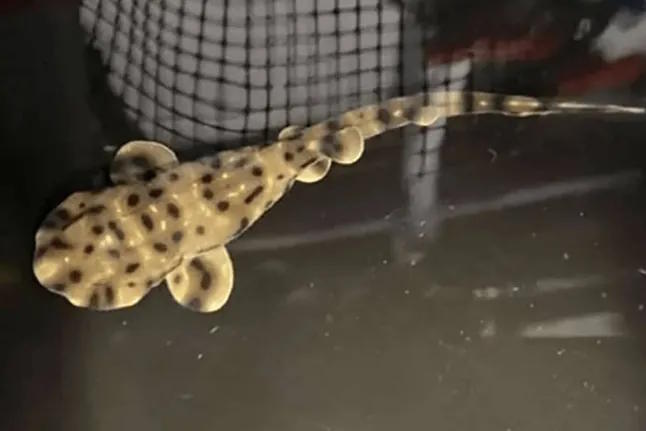The birth of a shark in a habitat where there were no male specimens of this species has excited the scientists at the Shreveport Aquarium in the state of Louisiana, reports Efe. This 'miracle' has been experienced with surprise and as an "exciting event" due to how unusual it is for these situations to occur, as reported by this institution in a statement.
"In an exciting event for the Shreveport Aquarium. A shark egg hatched. What makes this so unusual is that there were no male sharks present in its habitat," the note quotes.
The aquarium's breeding team first identified the egg approximately eight months ago, although it may have remained undetected for one or two more months.
Since its discovery, the egg has been closely monitored in the aquarium's quarantine facilities, and on January 3, 2025, the offspring successfully hatched with the team's assistance.
Caretakers determined that the two female sharks present in the tank had not been in contact with a male for over 3 years.
This suggests that a phenomenon called parthenogenesis, a rare form of asexual reproduction, or delayed fertilization, where fertilization occurs long after mating, may have occurred.
To confirm the exact cause, the breeding team will take samples to perform a karyotype on the offspring once it is of a suitable size for a blood draw, likely after a few months. This DNA analysis will provide definitive confirmation of whether the offspring is a product of parthenogenesis or delayed fertilization.
"This situation is incredible and shows the resilience of this species," said Greg Barrick, the Head of Living Animals at the Shreveport Aquarium.
"We are very excited to confirm in the coming months whether this was a case of parthenogenesis or delayed fertilization. It truly shows that life finds a way," he added.
"The new shark pup, affectionately nicknamed Yoko, is thriving under the care of our dedicated experts. While the pup is currently thriving, we are aware that young sharks born through such rare reproductive events often face significant challenges," the Aquarium specifies.
Swell sharks, native to the coastal waters of the Eastern Pacific, are known for their unique ability to swell their bodies with water or air to deter predators.
